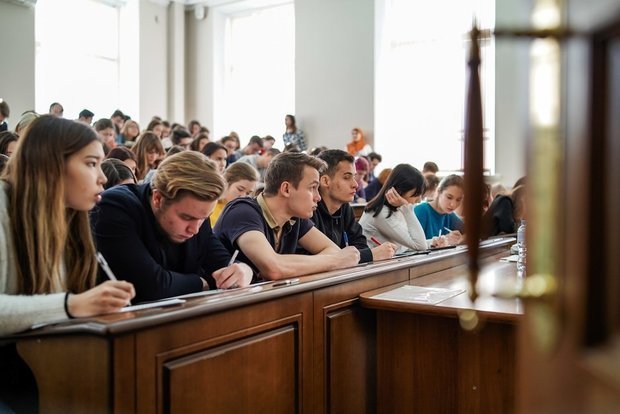Galina Akhmerova: ‘We need a balance between the good of the Soviet Union and the requirements of modern world’
Will the Soviet system of education for our children be returned and whether we should completely abandon the principles of the Bologna one?

Today, there are more and more calls in Russia to abandon the Bologna system and return to the Soviet system of children's education. Its advantages include uniform requirements and a competent presentation of school material, which students assimilated much better. The pros and cons of both concepts in the author's column for Realnoe Vremya are analysed by the founder of the Darwin Foundation for the Development of Accessibility of Modern Education and the creator of Round platform, Galina Akhmerova.
Transition to the Bologna system
If you want to change the world, start working with young people. And I am glad that the issue of restructuring the education system has been actively raised recently, because there are obviously a lot of problems.
In the president's address to the Federal Assembly in February 2023, the task of moving away from the Bologna system, which has been adopted in Russia since 2003, was once again formulated.
Let's analyse the main principles of the Bologna system:
- two-level system of education: bachelor's and master's degree;
- unified knowledge assessment scale, the so-called study credits, which show how much time was devoted to a particular discipline.
A student could freely change the university in the process of studying, including, for example, for a semester or a year to go abroad to study. In addition, the possibility of an independent choice of disciplines for study was provided.

It seems to sound quite reasonable, what went wrong?
From the very beginning, Russia's accession to the Bologna system was criticised by teachers, university rectors and some deputies. At that time, the parent community and employers did not yet understand the depth of the changes taking place, so a dozen years later we are already facing the consequences.
Here are the main arguments against the Bologna system:
- with the transition to a two-level education, the quality of knowledge has decreased: due to the four-year bachelor's degree, the number of hours for mastering a profession and practice has decreased, which students of the specialty began only at senior courses (we have significantly fewer students going to the master's programme. According to data for 2021, more than 480,000 students studied at Russian universities for bachelor's degree, and 180,000 in master's degree);
- change of bachelor's degree graduates in a master's degree may mean that they do not know the base of the profession;
- mobility of students and graduates leads to an outflow of qualified personnel abroad;
- lack of systematic knowledge. Since students themselves have to choose the training courses on which they will spend their time and effort, they sometimes choose subjects not according to their importance for their future profession, but according to recommendations;
- due to that the Bologna system was imposed from above, the situation was such that the curricula were simply reduced from 5 years to 4, and it is still not very clear how this is implemented from university to university: how many hours do elective disciplines take, and how many the main ones are, and which disciplines were excluded from the programme.
- introduction of testing as a key format for knowledge control (as in the state exams). When preparing for the exam, students most of the time study the format of the test itself — what is expected of you on each question. Subsequently, students answer based on the requirements for correct answers, and not on knowledge.

In addition, the goals that were set when joining the Bologna system did not come true.
Diplomas of Russian universities were not recognised in Western countries without additional procedures. Somewhere the university did not issue a bilingual document, somewhere the country requested additional apostille and so on.
Dmitry Evstafyev, a political expert and HSE professor, has recently commented in an interview on the main differences between the Bologna system and the Soviet one:
“The Bologna system is neither about education, nor about knowledge, nor about qualifications, it is about money. This is a vacuum cleaner sucking a lot of money out of parents for 12+ years. Diploma stamping system. A system about skills and competencies. While the Soviet-Russian system was about knowledge. The Bologna system is an educational pyramid that always has a beneficiary. Outflow of the best cadres to the West.”
Advantages of the Soviet education system
In the Soviet system, the role of the teacher (mentor) as the main source of knowledge was preserved. According to experts of those years, a schoolboy and a student received up to 80% of knowledge with the participation of a teacher. According to the Bologna system, the teacher rather performs the role of a navigator, providing a passage to knowledge. Students are taught to learn because this skill is relevant in a dynamic world.
The student learns how to keep track of current sources, how to independently extract information and critically evaluate it. At the same time, he, of course, can turn to the teacher for advice and expert opinion.
The Bologna system includes about 70% of the student's independent work, reducing communication with teachers. And can we imagine that a doctor, an engineer or a teacher studied without communicating with teachers who directly transfer their experience and skills?
This is the main difference between the Soviet system.

What, in my opinion, was good about the Soviet education system:
- according to the Soviet system, all students graduated from the specialty, studying at universities was free. After the collapse of the Soviet Union: students continued to study in specialty programmes, but there were not only budget, but also commercial places;
- the Soviet specialty differed from the bachelor's degree primarily in the number of hours in the curriculum and lasted 5-6 years, and after that it was possible to immediately enter graduate school, bypassing the master's degree;
- the Soviet higher education system worked in conjunction with the “school — secondary school — university — enterprise”, which made it possible to massively close the personnel issue.
The Bologna system allows students to continue their studies at another university, including universities in other countries, on the initiative of the student. This broadened the horizons of students; - in the USSR, each graduate had to work for three years by distribution, it was possible to leave the enterprise only after this period. After the collapse of the Soviet Union, this system was not preserved, and jobs for students were no longer guaranteed.
The Bologna system as a whole is focused on competition in the labour market and does not guarantee anything after graduation (for both students and employers). But it allows students to look for themselves in other directions and easily switch to other activities.
Today, a course towards education reform has been outlined, the path will not be fast. Here we need to find a balance between all the good things that happened in the Soviet Union, the standardisation of processes over the past 20 years and the requirements of the modern world.
It is important that reformers, taking into account the needs of today's youth, take into account both the shortcomings of past decisions and the merits of their choice.
Reference
The author's opinion may not coincide with the position of the editorial board of Realnoe Vremya.